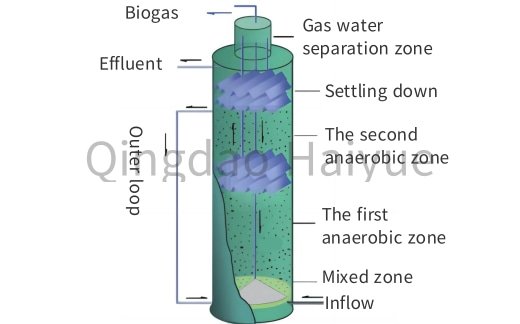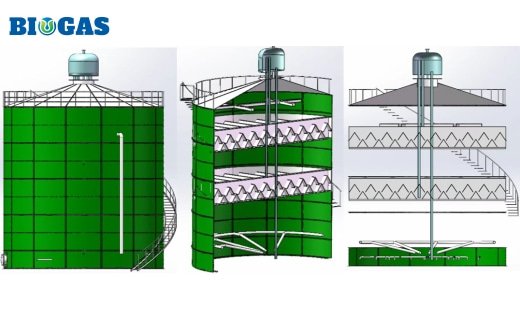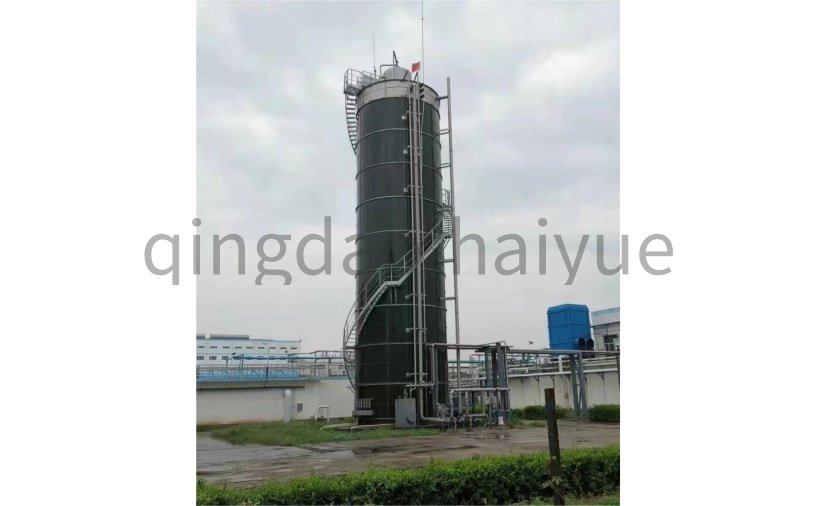IC Anaerobic Tank and Anaerobic Fermentation Technology: New Breakthroughs in Efficient Wastewater Treatment and Energy Recovery
With the continuous development of modern industry, various pollution issues have become increasingly severe. Among them, wastewater treatment has emerged as one of the most urgent problems to address. The IC anaerobic reactor, as a novel wastewater treatment technology, has been widely applied both domestically and internationally. This article will provide a detailed introduction to the working principles, advantages, and practical applications of the IC anaerobic reactor.

1. Working Principle of IC Anaerobic Reactor
The IC anaerobic reactor is an efficient, low-energy, and high-resilience wastewater treatment technology. Its core component is the IC reactor, which converts organic matter in wastewater into biogas and water through anaerobic fermentation. The working process of the IC anaerobic reactor is as follows:
After wastewater enters the IC reactor, it is first distributed by a distributor, ensuring an even distribution at the bottom of the reactor.
Inside the reactor, the organic matter in the wastewater undergoes anaerobic fermentation with bacteria, generating biogas.
As the biogas rises, it disrupts the anaerobic biofilm attached to the ceramic particles, causing it to detach and be expelled along with the biogas.
After a period of reaction, the organic matter in the wastewater is converted into biogas and water, improving the water quality.

High Efficiency: The IC anaerobic reactor offers high wastewater treatment efficiency, achieving effective nitrogen and phosphorus removal, significantly improving water quality.
Low Energy Consumption: The IC reactor employs highly efficient anaerobic technology, resulting in low energy consumption. Additionally, the biogas produced can serve as a clean energy source, further reducing operating costs.
Strong Resistance to Shock Loads: The IC anaerobic reactor has strong resistance to fluctuations in water quality and volume, ensuring stable wastewater treatment performance even under varying conditions.
Stable Operation: The IC reactor uses ceramic particles as a carrier, providing a high capacity for biofilm attachment, ensuring biofilm stability, and maintaining the consistent operation of the entire system.
Easy Maintenance: The IC anaerobic reactor has a simple structure and is easy to operate and maintain, greatly reducing operational and maintenance costs.
Strong Adaptability: The IC anaerobic reactor is suitable for different types and scales of wastewater treatment projects. It can be used independently or in combination with other processes, offering strong adaptability.

As an innovative wastewater treatment technology, the IC anaerobic reactor has been widely used both domestically and internationally. For example, in a large-scale wastewater treatment plant, the IC anaerobic reactor has been employed to treat domestic sewage, achieving excellent treatment results and economic benefits. Additionally, countries like the Netherlands, Germany, and France have also widely applied IC anaerobic reactors. These application cases fully demonstrate the advantages and characteristics of the IC anaerobic reactor, providing strong support for its use in the wastewater treatment field.
In summary, the IC anaerobic reactor, with its features of high efficiency, low energy consumption, strong resistance to shock loads, stable operation, easy maintenance, and strong adaptability, has shown excellent treatment results and economic benefits in practical applications. As environmental awareness continues to grow and technology advances, the IC anaerobic reactor is expected to be widely applied in more fields, playing a greater role in improving our quality of life and contributing to environmental protection.